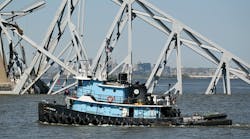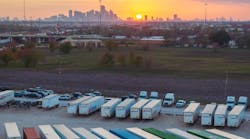Effective September 16, the US Customs and Border Patrol (CBP) will no longer allow cargo tanks containing residual product to be classified as empty when they enter the United States. The rule change will require a manifest for the cargo residue regardless of quantity.
This is a U.S. initiative that will have its biggest impact on trade with Canada and Mexico. The rule change is not limited to hazardous materials, and includes products ranging from refined fuels and plastic pellets to edibles and beverages. It applies to all bulk shipments—liquid and dry. Additionally, all border-crossing points into the U.S. will be affected.
In the past, cargo tanks could be transported back into the U.S. marked as “empty” despite some residual product remaining after the cargo was delivered. However, the CBP modification will require that these formerly “empty” containers now should be classified, entered, and manifested in order to prevent security risks to the United States, eliminate the potential risk to the health and safety of CBP officers, and fulfill the CBP’s revenue collection responsibilities, according to CBP.
All containers with cargo, regardless of the residual amount, will need to be manifested and entered in compliance with all customs laws, which include advanced notice of the product, its origin point, and the actual amount of residue for purposes of manifesting and entry.


